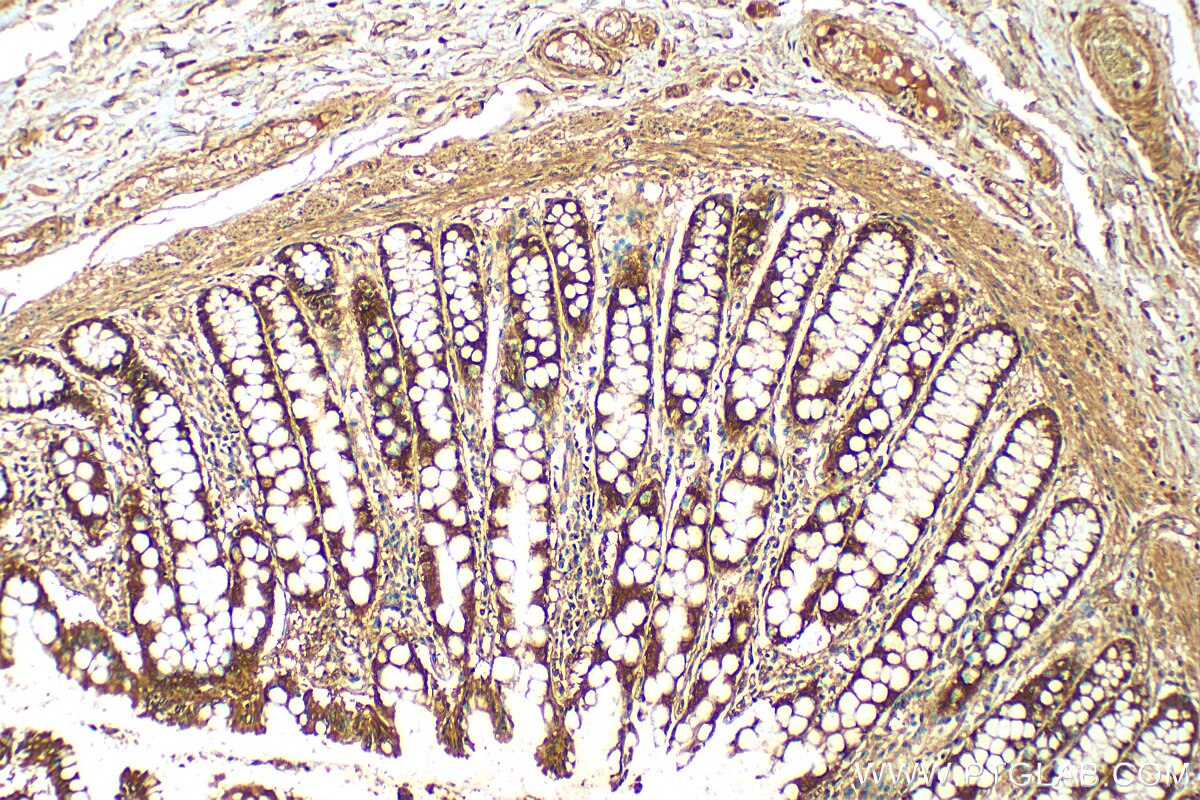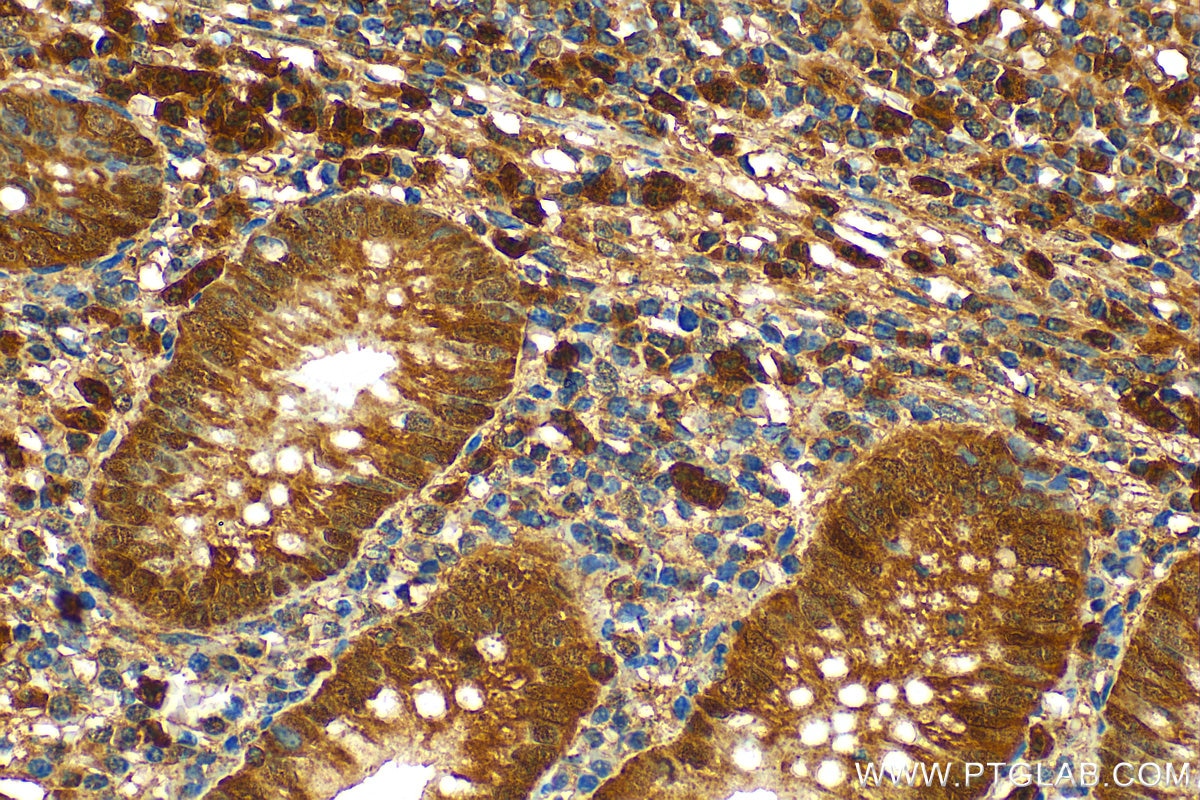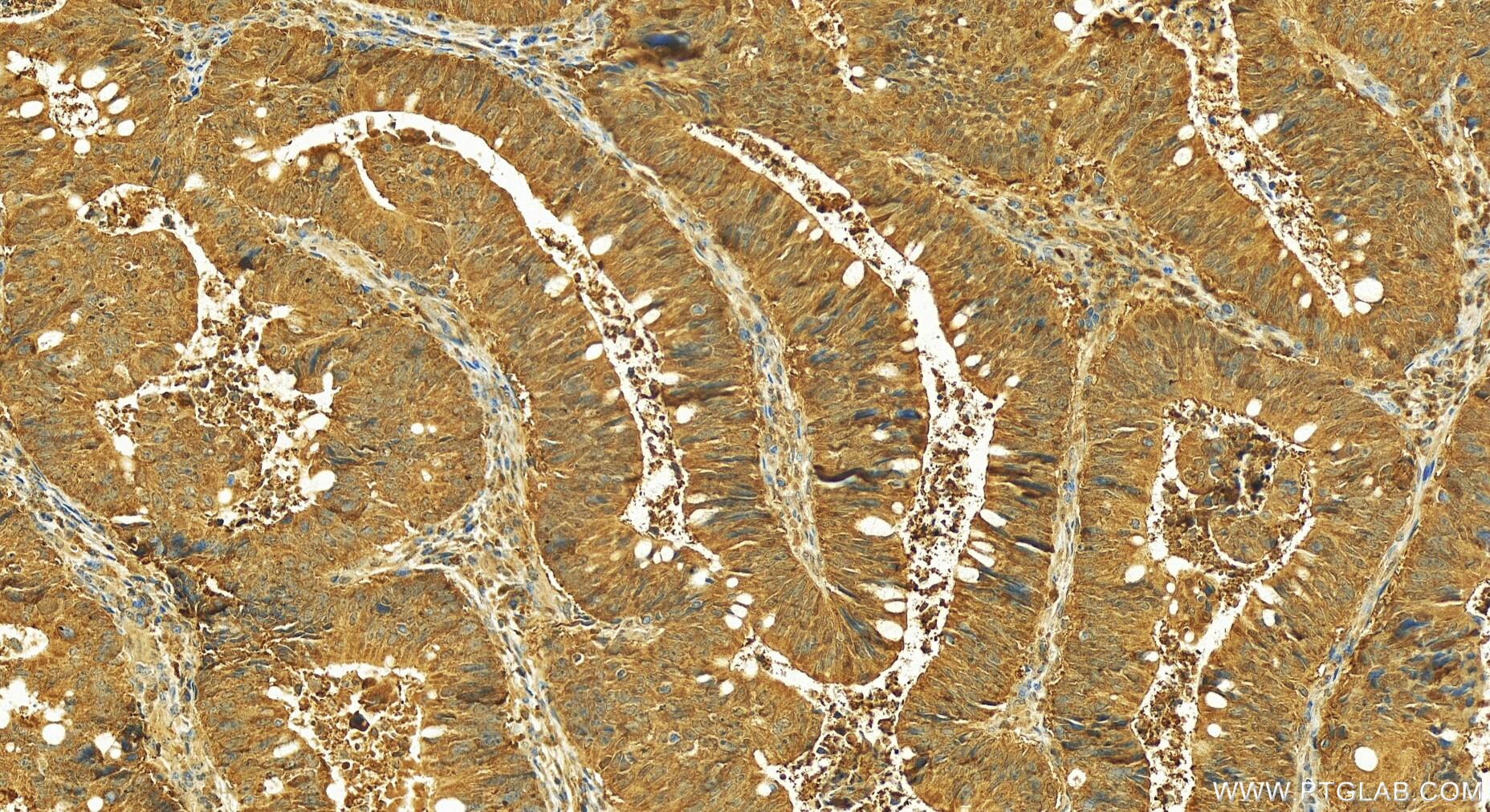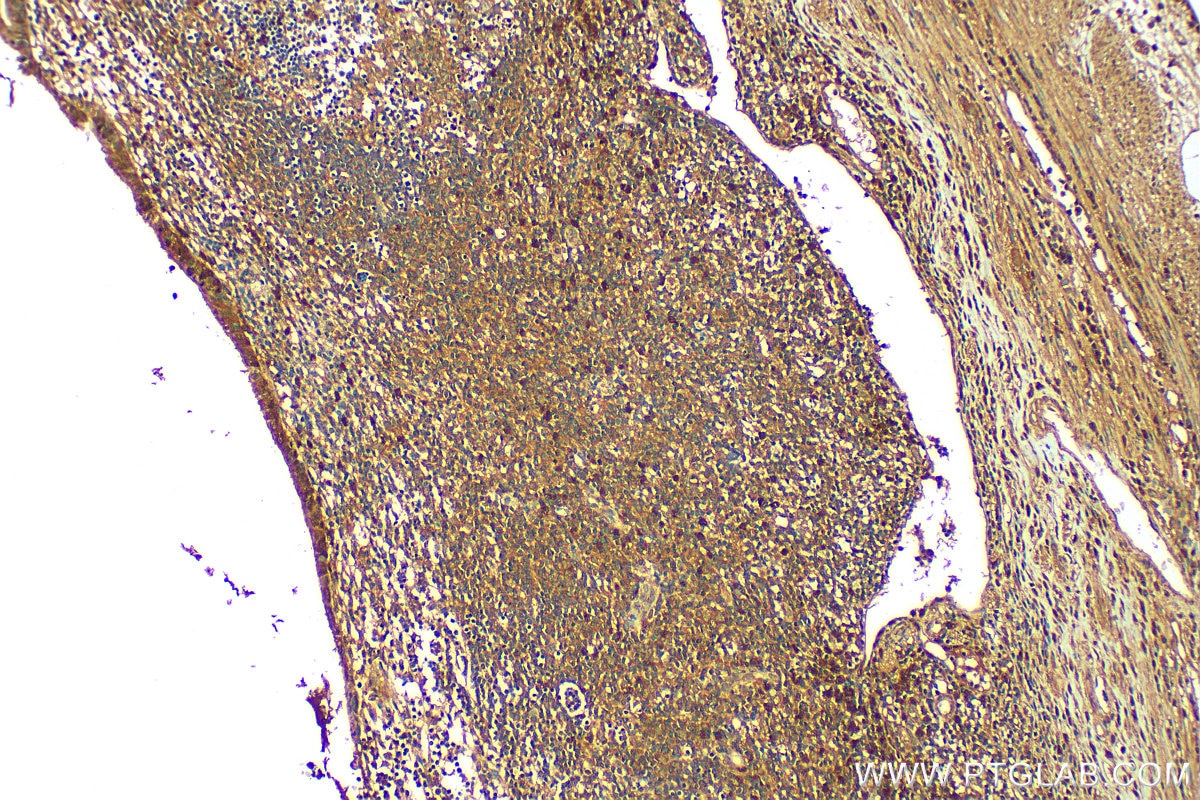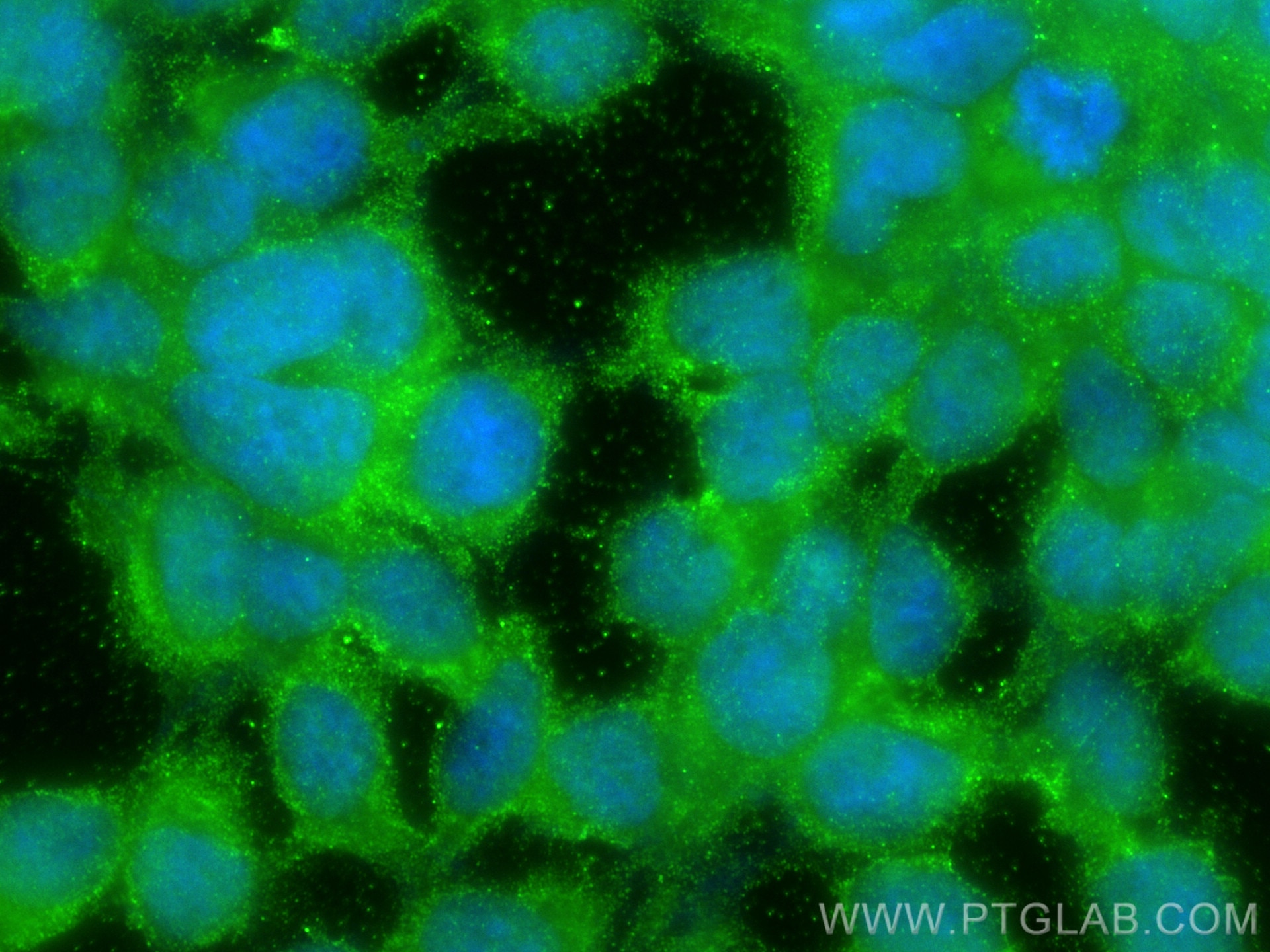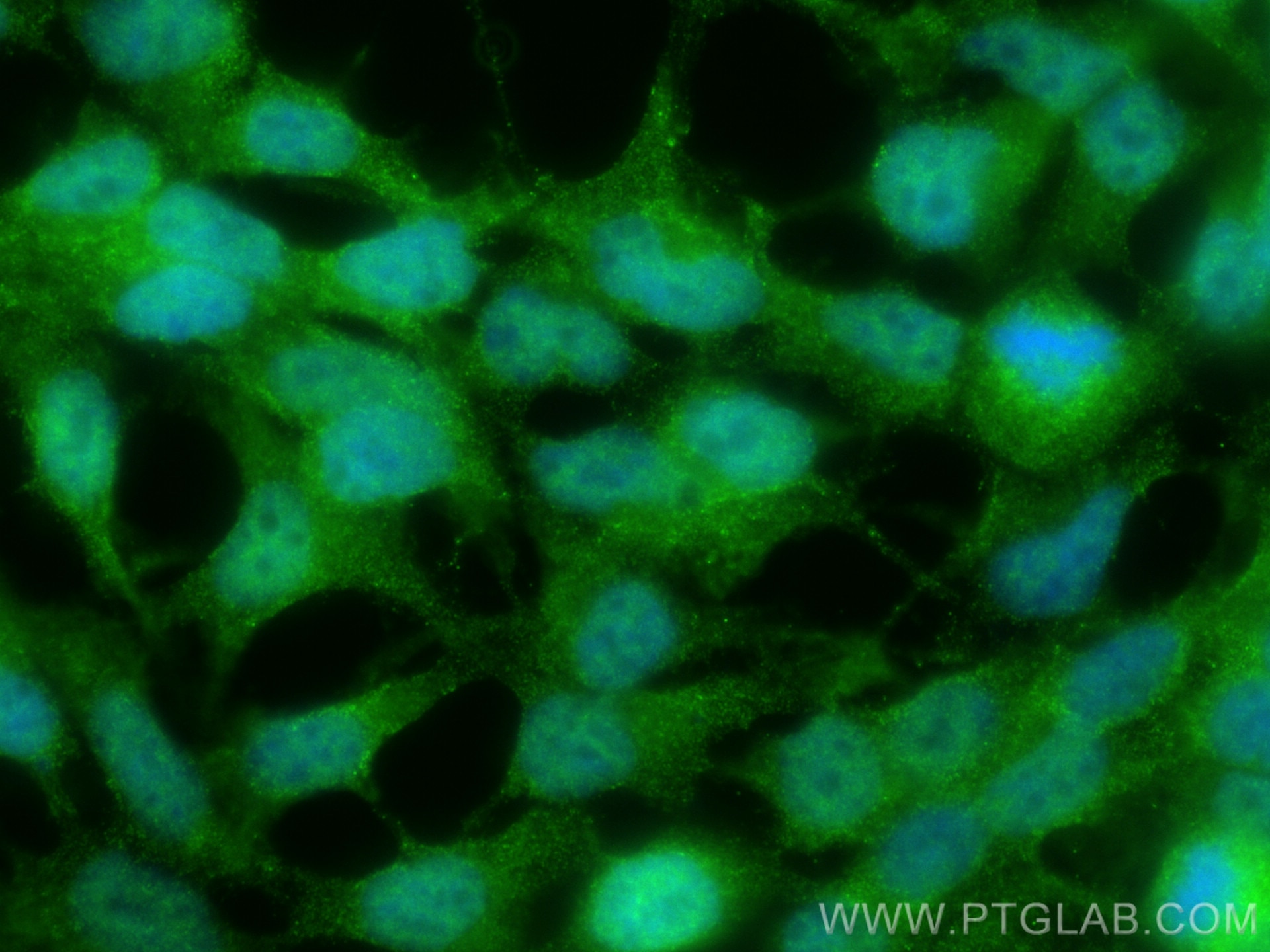Tested Applications
| Positive IHC detected in | human colon tissue, human appendicitis tissue, human colon cancer tissue Note: suggested antigen retrieval with TE buffer pH 9.0; (*) Alternatively, antigen retrieval may be performed with citrate buffer pH 6.0 |
| Positive IF/ICC detected in | HEK-293 cells |
Recommended dilution
| Application | Dilution |
|---|---|
| Immunohistochemistry (IHC) | IHC : 1:50-1:500 |
| Immunofluorescence (IF)/ICC | IF/ICC : 1:200-1:800 |
| It is recommended that this reagent should be titrated in each testing system to obtain optimal results. | |
| Sample-dependent, Check data in validation data gallery. | |
Published Applications
| IHC | See 1 publications below |
Product Information
23975-1-AP targets BCL2L15 in IHC, IF/ICC, ELISA applications and shows reactivity with human samples.
| Tested Reactivity | human |
| Cited Reactivity | human |
| Host / Isotype | Rabbit / IgG |
| Class | Polyclonal |
| Type | Antibody |
| Immunogen | BCL2L15 fusion protein Ag21155 Predict reactive species |
| Full Name | BCL2-like 15 |
| Calculated Molecular Weight | 163 aa, 18 kDa |
| GenBank Accession Number | BC127719 |
| Gene Symbol | BCL2L15 |
| Gene ID (NCBI) | 440603 |
| RRID | AB_3085718 |
| Conjugate | Unconjugated |
| Form | Liquid |
| Purification Method | Antigen Affinity purified |
| UNIPROT ID | Q5TBC7 |
| Storage Buffer | PBS with 0.02% sodium azide and 50% glycerol, pH 7.3. |
| Storage Conditions | Store at -20°C. Stable for one year after shipment. Aliquoting is unnecessary for -20oC storage. 20ul sizes contain 0.1% BSA. |
Background Information
B-cell lymphoma 2 (Bcl-2)-like protein 15 (BCL2L15), also known as BCL2 family kin (BFK), belongs to the BCL2 protein family, and appears to induce weak apoptosis and antagonize the pro-survival function of Bcl2 (PMID:32708974). In addition, studies reported BCL2L15 expression in the stomach, ovaries, bone marrow, spleen, and uterus (PMID:12700646).
Protocols
| Product Specific Protocols | |
|---|---|
| IHC protocol for BCL2L15 antibody 23975-1-AP | Download protocol |
| IF protocol for BCL2L15 antibody 23975-1-AP | Download protocol |
| Standard Protocols | |
|---|---|
| Click here to view our Standard Protocols |
